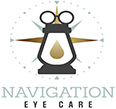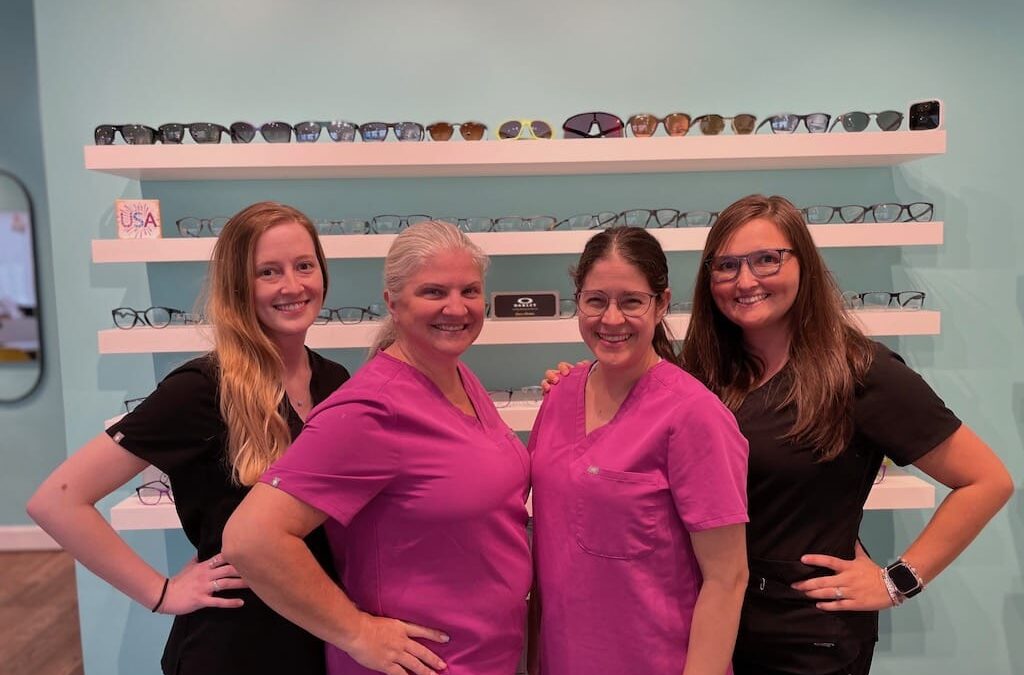Aging Gracefully: Addressing Dry Eye Discomfort in Seniors
Aging is a natural part of life, and while it brings with it wisdom and experience, it can also bring some changes to our health, including our eye health. One common issue that many seniors face is dry eye syndrome. Dry eyes can be uncomfortable and impact the overall quality of life, but there are ways to address and manage this condition with the help of Navigation Eye Care’s Optometrist Chesapeake VA. Let’s explore dry eye in seniors, its causes, symptoms, and effective treatments.
Understanding Dry Eye in Seniors
Dry eye syndrome is a condition where the eyes do not produce enough tears or have a poor quality tear film. Tears are essential for keeping the eye’s surface lubricated and nourished, ensuring clear vision and comfort. However, as we age, various factors can contribute to the development of dry eye.
Common Causes of Dry Eye in Seniors
- Aging: Reduced tear production is a natural part of the aging process, making seniors more susceptible to dry eyes.
- Medications: Many seniors take medications for various health conditions, and some of these medications can have side effects that affect tear production.
- Underlying Health Conditions: Conditions like diabetes, rheumatoid arthritis, and thyroid disorders can increase the risk of dry eye.
- Environmental Factors: Dry or windy environments, as well as prolonged screen time, can exacerbate dry eye symptoms.
Recognizing the Symptoms
It’s essential to be aware of the signs and symptoms of dry eye in seniors, as early diagnosis and treatment can significantly improve comfort and eye health. Common symptoms include:
- Burning or stinging sensation in the eyes
- Redness
- Blurred vision
- Sensitivity to light
- Eye fatigue
- Excessive tearing (a reflex response to dryness)
If you or a senior loved one is experiencing any of these symptoms, it’s essential to consult Navigation Eye Care’s Optometrist Chesapeake VA for a thorough eye examination.
Effective Treatments for Dry Eye in Seniors
The good news is that there are various treatments available to manage dry eye in seniors, improving comfort and quality of life.
- Artificial Tears: Lubricating eye drops can provide relief by supplementing the natural tear film.
- Prescription Medications: In some cases, prescription medications may be necessary to reduce inflammation or stimulate tear production.
- Meibomian Gland Expression: For seniors with evaporative dry eye, a procedure to unblock the meibomian glands and improve oil secretion may be recommended.
- Punctal Plugs: These tiny plugs can be inserted into the tear ducts to slow down tear drainage, keeping the eyes moist.
- Lifestyle Modifications: Simple changes such as using a humidifier, taking breaks during screen time, and maintaining a healthy diet rich in omega-3 fatty acids can help manage dry eye symptoms.
The Importance of Regular Eye Exams
For seniors, regular eye exams are crucial for early detection and management of dry eye and other eye conditions. Your optometrist can tailor a treatment plan to your specific needs, ensuring that you age gracefully with clear and comfortable vision.
Aging gracefully is about taking care of both the body and the eyes. If you or a senior loved one is experiencing dry eye symptoms, don’t hesitate to seek help and schedule an appointment with Navigation Eye Care’s Optometrist Chesapeake VA. With the right treatment and care, you can address dry eye discomfort and continue to enjoy the beauty of life through clear and comfortable vision.
Behind the Counter: Medications That May Contribute to Dry Eye Symptoms
Medications play a crucial role in managing various health conditions, but they can also have side effects. One side effect that often goes under the radar is dry eye syndrome. If you’ve been experiencing dry eyes and are taking medications, it’s essential to understand that certain drugs can contribute to this discomfort. In this article, we’ll explore the medications that may contribute to dry eye symptoms and discuss the importance of scheduling an appointment with Navigation Eye Care’s Optometrist Chesapeake VA for guidance and treatment.
Understanding Dry Eye Syndrome
Dry eye syndrome occurs when your eyes do not produce enough tears or have poor-quality tears. Tears are vital for maintaining the health of the eye’s surface, providing lubrication, nourishment, and protection. When the balance of tears is disrupted, it can lead to dry eye symptoms.
Medications That Can Contribute to Dry Eye
Several types of medications have been linked to dry eye symptoms. These include:
- Antihistamines: These drugs are commonly used to treat allergies and colds. While they can alleviate symptoms like sneezing and runny nose, they may also reduce tear production, contributing to dry eyes.
- Decongestants: Decongestant eye drops and oral decongestants can lead to dryness by narrowing blood vessels. This can reduce blood flow to the eyes, affecting tear production.
- Diuretics: Diuretics, often prescribed for conditions like high blood pressure and heart failure, can increase urination and fluid loss, potentially leading to dry eyes.
- Antidepressants: Some antidepressant medications, including selective serotonin reuptake inhibitors (SSRIs), have been associated with dry eye symptoms as a side effect.
- Birth Control Pills: Hormonal contraceptives may alter the composition of tears, potentially causing dry eyes.
- Pain Medications: Nonsteroidal anti-inflammatory drugs (NSAIDs) and opioids can affect tear production and contribute to dryness.
Managing Dry Eye While Taking Medications
If you’re taking any of the medications discussed above that may lead to dry eye symptoms, there are steps you can take to alleviate discomfort:
- Stay Hydrated: Drinking plenty of water can help maintain overall hydration, including tear production.
- Use Artificial Tears: Lubricating eye drops or artificial tears can provide relief from dryness. Consult Navigation Eye Care’s Optometrist Chesapeake VA for guidance on choosing the right eye drops for your eyes.
- Discuss Medication Alternatives: If you suspect that your medication is causing dry eye symptoms, talk to your healthcare provider about alternative medications that may have fewer side effects.
- Adjust Your Environment: Consider using a humidifier to add moisture to the air, especially in dry indoor environments. Reducing screen time and taking breaks can also help.
- Consult Navigation Eye Care: If you’re experiencing persistent dry eye symptoms, it’s crucial to seek professional guidance. She can perform a comprehensive eye exam to determine the underlying causes and recommend suitable treatments.
The Importance of Professional Guidance
When it comes to managing dry eye symptoms while taking medications, consulting Navigation Eye Care’s Optometrist Chesapeake VA is essential. She can assess the severity of your dry eye, identify any underlying causes, and tailor a treatment plan that may include prescription eye drops or other therapies. By working closely with a Navigation Eye Care’s team, you can find effective ways to manage dry eye symptoms and maintain the health and comfort of your eyes

